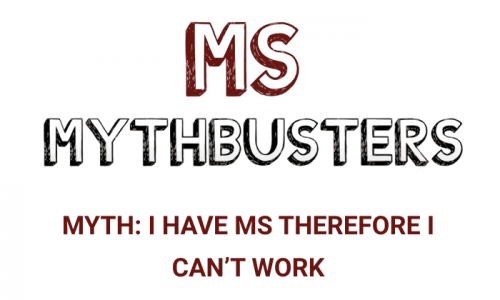- Australian researchers conducted preliminary testing (a pilot trial) on an 8-week online discussion forum with peer mentors to help people with long-term MS explore employment options.
- Participants reported a positive experience with the “MS Jobseek” forum and found it relevant to their needs.
- The pilot trial, funded by an MS Australia Incubator grant, provides an excellent foundation for refining and developing the MS Jobseek peer support forum.
Peer mentors with lived experience are important community-based supports for people living with chronic diseases such as MS. By sharing their knowledge and experiences, peer mentors can support self-confidence and personal control, also known as “self-efficacy”. Peer mentors can also expand and diversify a person’s social networks and their opportunities to participate socially. These same factors are important in successful return to work for people with MS, who experience higher unemployment rates than the general population.
What did the researchers do?
Peer mentoring is a well-known concept in job-seeking, but there is little information available on how to provide the best support in general, or in MS specifically. In this pilot study, published in the Journal of Vocational Rehabilitation, Dr Diana Dorstyn from the University of Adelaide and colleagues trialed an online peer mentoring program to help people with long-term MS explore employment options.
People included in the trial were either unemployed and wanting to return to the workforce or experienced unstable employment (temporary or casual). Importantly, they were not unable to work due to health issues. Participants engaged either in an 8-week discussion forum called MS Jobseek, led by peer mentors with a psychologist moderator to supervise, or they were provided with written modules covering job-search and career planning skills specifically designed for people with MS. Those in the MS Jobseek group also had access to the written modules, so the trial was designed to explore if there was an added benefit from engaging in the peer mentor discussion forum. A total of 29 people participated in the study, 14 in the MS JobSeek group and 15 in the comparison group. Peer mentors were people with MS who were currently employed and received additional training on the MS Jobseek program.
What did the researchers find?
Findings revealed that the majority of those engaging with MS Jobseek said they would continue to use the forum in future. Peer support and advice were seen as beneficial, as one participant noted: “It has been good to participate and hear similar stories from others…I felt that I’m not the only one that is going through this.”
Unfortunately, the study was heavily impacted by the timing of the COVID-19 pandemic, which likely contributed to anxiety, variable levels of engagement and a high dropout rate. During this time, job opportunities and the usual levels of physical and social activity substantially reduced for the entire population experiencing the pandemic, not just for those living with MS.
The researchers measured job search behaviours, job search outcomes and quality of life before and after the program. There was no statistically significant impact of the MS Jobseek forum on these outcomes, however, there was marked variability in the outcomes in both groups. Two participants in the MS Jobseek group showed a reliable improvement in job searching and/or confidence in the process. At the end of 8 weeks, one person in the MS Jobseek group had sourced full-time employment and one had started voluntary unpaid work. In contrast, three people who were assigned to MS Jobseek but did not engage with the forum reported that they were less likely to engage in job seeking in the next two months. Similar variability was seen in the control group who were using written modules: two participants reported reliable improvements in job seeking or self-efficacy, while five reported a decline, and one transitioned from casual to part-time employment.
What is next for MS Jobseek?
The findings from this study show real promise as a foundation from which to refine and develop MS Jobseek as a supplemental service for the MS community. In the post-COVID-19 environment, many people living with MS face a complex employment situation that requires quality and continuity of job-seeking support, and remote help has become even more important. Online peer support is a feasible model, but the study showed that more work is needed to promote communication between peers. The researchers made recommendations to improve engagement and satisfaction with the forum in future, such as using multiple modes of communication (e.g. phone, email, video, bulletin boards), increasing the time requirement (from 5 minutes per week in the current study), and tailoring support to the individual, such as matching mentors and mentees according to interests and experiences.
This work exemplifies the great benefit of MS Australia’s Incubator Grant program, with smaller grants allowing researchers to gain critical preliminary evidence that informs the design of future work with more participants.






